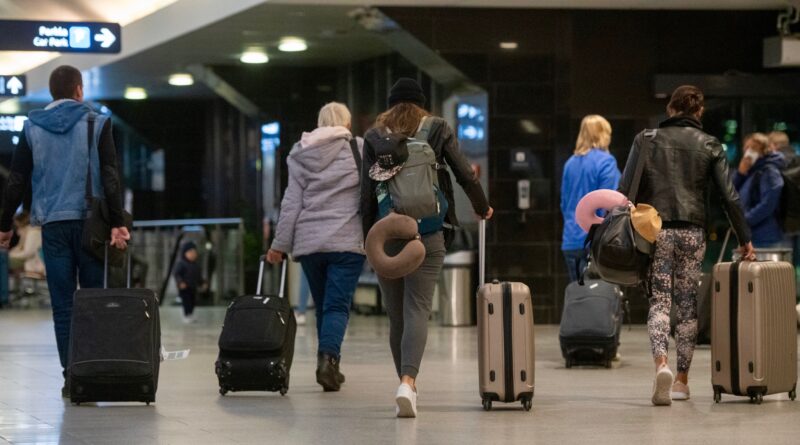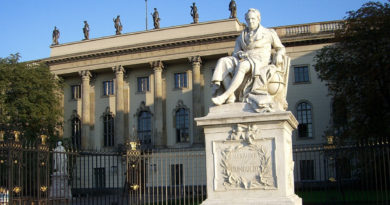Stranded abroad: how EU repatriations work and why some EU citizens struggled to return to the UK
The permission to leave the house at 5am, during the curfew Uganda put in place to deal with the Covid-19 crisis, was the last hurdle to clear before they could board the plane and return home.
Organised by the Dutch government to bring its citizens back to the Netherlands, the special flight would leave Kampala at 10am and stop in Dar es Salaam, Cairo and Athens, picking up more passengers bound to Amsterdam. There, Elzbieta and her 4-year-old son would have to wait another 15 hours before a flight to their final destination: London.
A Polish citizen, Elzbieta S. on February 1st took her son on a holiday to Uganda, where he would see his father. They were due to return on March 29th. But their flight got cancelled after the pandemic was declared and countries started to ban travels to limit the spread of the coronavirus.
What to do? Booking another flight? The few left had prohibitive prices. Contacting the Polish Embassy? Poland does not have a diplomatic mission in Uganda. Elzbieta resorted to call the Polish Embassy in Nairobi, Kenya. She was told she could get help to return to Poland, but after 19 years in the UK, home was no longer there.
As she has settled status (the right to permanent residence) in the UK, she thought the British High Commission in Uganda might offer some support. Instead, she was quickly dismissed. “As soon as they heard a foreign accent, they hung up the phone, and when I called again, they said they would only help British citizens,” Elzbieta told Europe Street.
She then tried with the German and the Dutch consulates, but the only option that became available was a flight to Germany beyond her means.
Feeling abandoned, she wrote to her MP and to citizens’ rights organisation the3million, in the UK, desperately looking for help. No solution came about.
Days later, she received a call from the Polish Embassy in Nairobi. As part of the EU consular cooperation, there was a chance to leave on a flight to Amsterdam organised by the Dutch government and open to other EU citizens. After that, she would have to continue to London by her own means.
“They were very supportive at the Polish Embassy. They took care of all the paperwork with the Dutch Embassy,” Elzbieta said. A freelancer due to start a new job in April, she was also granted 1,800 euros to pay the tickets, a loan she now does not know how to repay.
How EU repatriations work
Many other people will have found themselves in a similar situation due to the coronavirus outbreak. Travel restrictions imposed around the world have left some 600,000 EU citizens stranded overseas, according to data published by the European Commission.
In these situations, European cooperation can become a safety net. During emergencies, EU citizens in non-EU countries can receive consular support from other EU states and the European Commission can also step in. But how do repatriations work?
As long as they remain available, the priority is for people to return with commercial flights. When this is no longer possible, governments can decide to charter planes to bring their citizens back home (passengers, however, have to pay for these flights).
EU countries can also request to activate the EU Civil Protection Mechanism, by which the EU co-finances up to 75% of transport costs if citizens of other EU member states are taken on board.
In such cases, EU Delegations can help coordinate, for example preparing the list of passengers, negotiating special landing rights, seeking waivers when people risk overstaying their visa, or organising directly alternative transport links.
The repatriation of EU citizens during the coronavirus pandemic was the largest operation ever coordinated through the EU consular network. By May 2nd, 550,000 Europeans had been repatriated with flights organised by EU member states, according to the European Commission. Almost 200 flights bringing 45,000 EU citizens home were co-financed by the EU. Citizens from associated countries, such as Norway, Serbia, Switzerland, Turkey, and the UK, were also included. Some 5,000 Britons have been repatriated with EU flights, the Commission has said.
Who brings EU ‘mobile citizens’ home?
The situation however showed that EU citizens living in another (or former) EU country, like Elzbieta, may face additional problems, as the responsibility for their repatriation is not always clear.
The German Federal Foreign Office says on its website foreign family members of German citizens would be repatriated, if the family travels together. For people with a residence permit, or who are registered in Germany, the government would “try to find a solution within the limits of its capacities”.
The Netherlands has a Special Assistance Abroad scheme that covers Dutch travellers, their foreign partners and family members, and people who have a valid resident permit or are registered with a Dutch municipality. The Dutch government also says that when there are seats left, they may be “offered to other (paying) non-Dutch people who are, for example, EU citizens.”
As regards the UK, which has left the EU but is still in the post-Brexit transition period, the priority is given to British citizens. The Foreign & Commonwealth Office says on its website: “With thousands of British nationals on our waiting lists for flights home, they and their families remain our first priority for these flights”.
The web page adds: “We will pay special attention to vulnerable British nationals. Vulnerable non-British UK residents with Indefinite Leave to Remain, and other foreign nationals, may only be accommodated on flights if there is sufficient capacity.”
Why such differences? A spokesperson of the EU Delegation in the UK told Europe Street that EU countries are not obliged to take part in joint EU repatriation efforts and, for people in need of assistance abroad, “the first port of call remains the national embassy or consulate, or alternatively, the EU Delegation”.
He also added that “settled status in the UK enacts the rights of EU citizens on the UK territory” but “it is not a replacement of citizenship.”
Notwithstanding the imperfect European collaboration, Elzbieta is now safe at home in London and a friend has organised a fundraising campaign to cover her travel expenses. Her long journey may be similar to others, but her case was complicated by one key factor: she does not live in the country of her citizenship.
More information: European Commission pages on consular protection rights.
Claudia Delpero © all rights reserved.
Photo by Raigo Pajula © European Union, 2020. Source: EC – Audiovisual Service.
Europe Street News is an online magazine covering citizens’ rights in Europe. We are fully independent and we are committed to providing factual, accurate and reliable information. We believe citizens’ rights are at the core of democracy and information about these topics should be accessible to all. This is why our website and newsletter are available for free. Please consider making a contribution so we can continue and expand our coverage.





